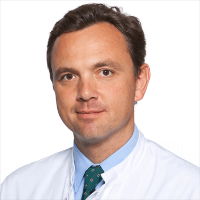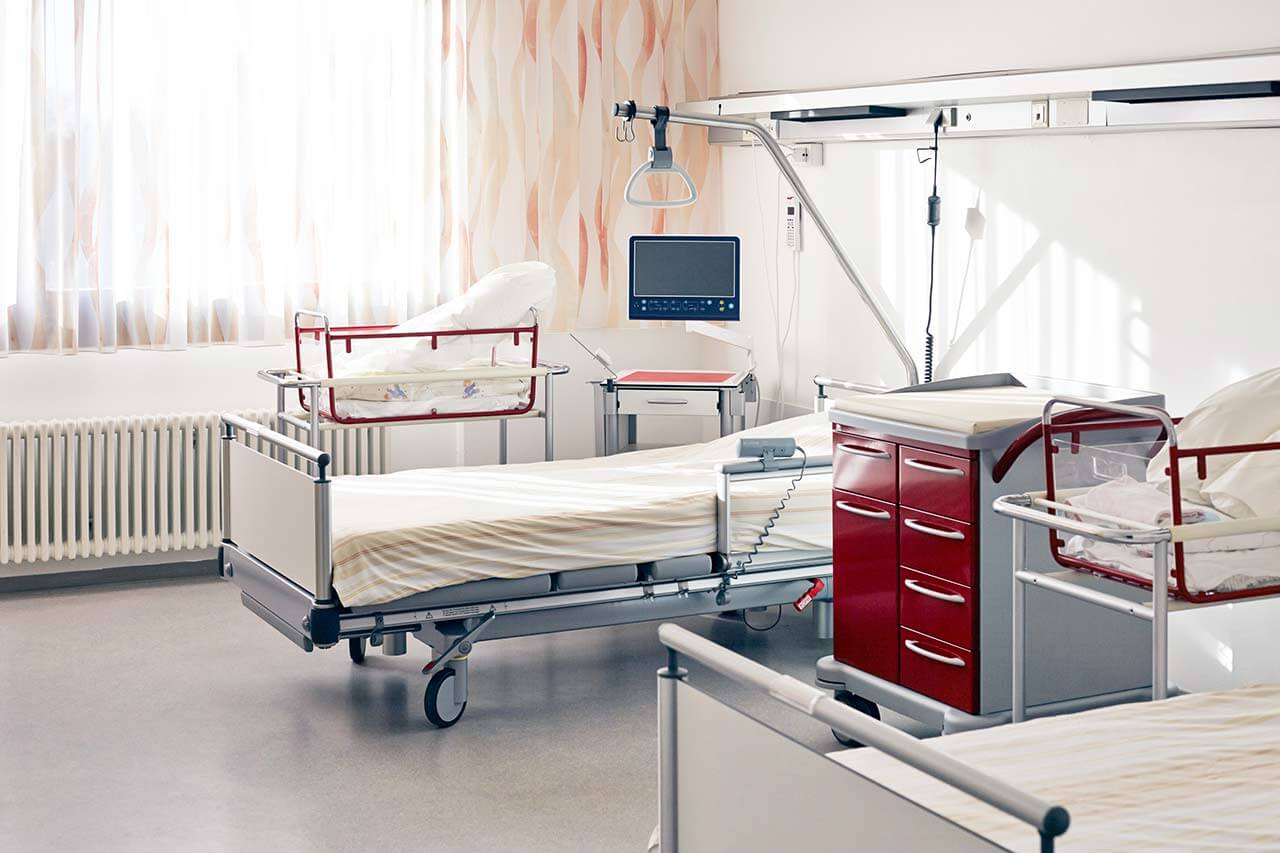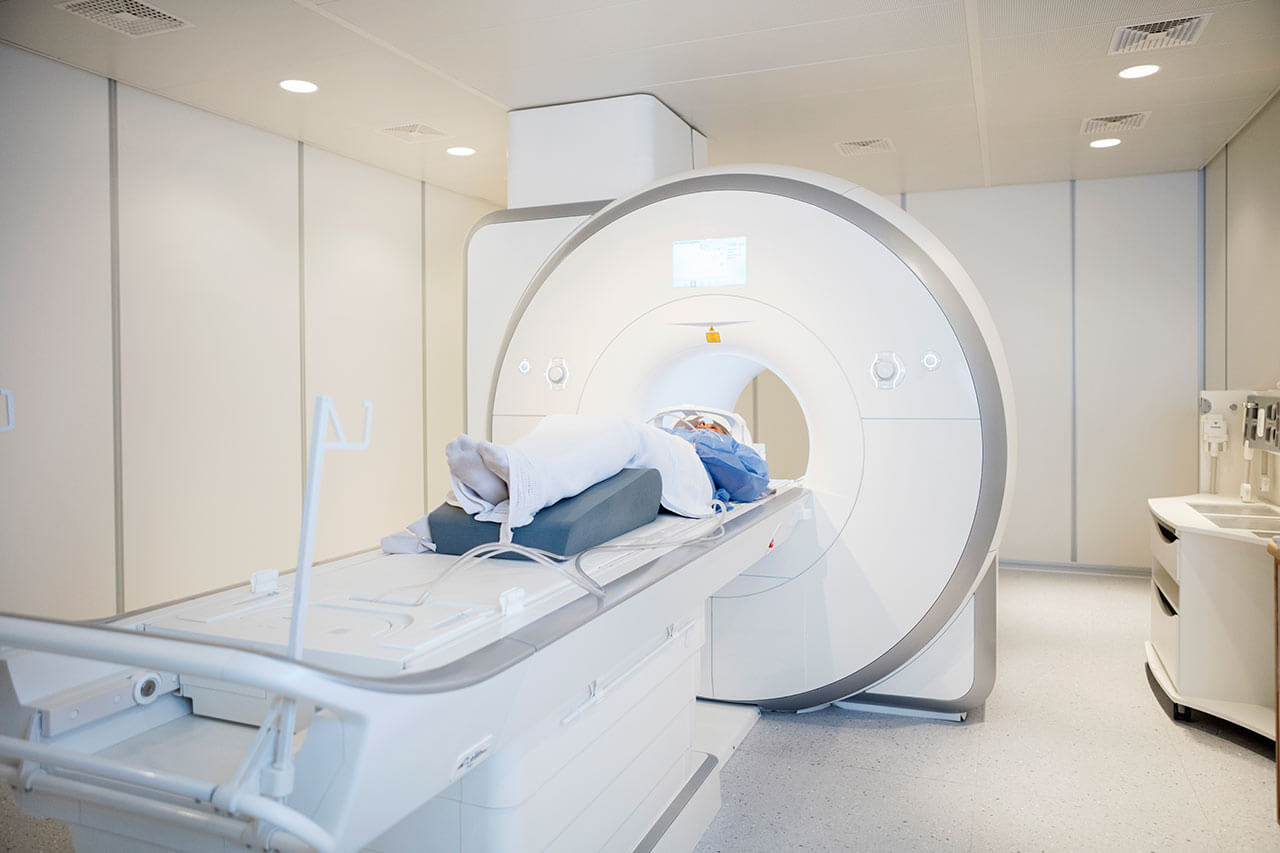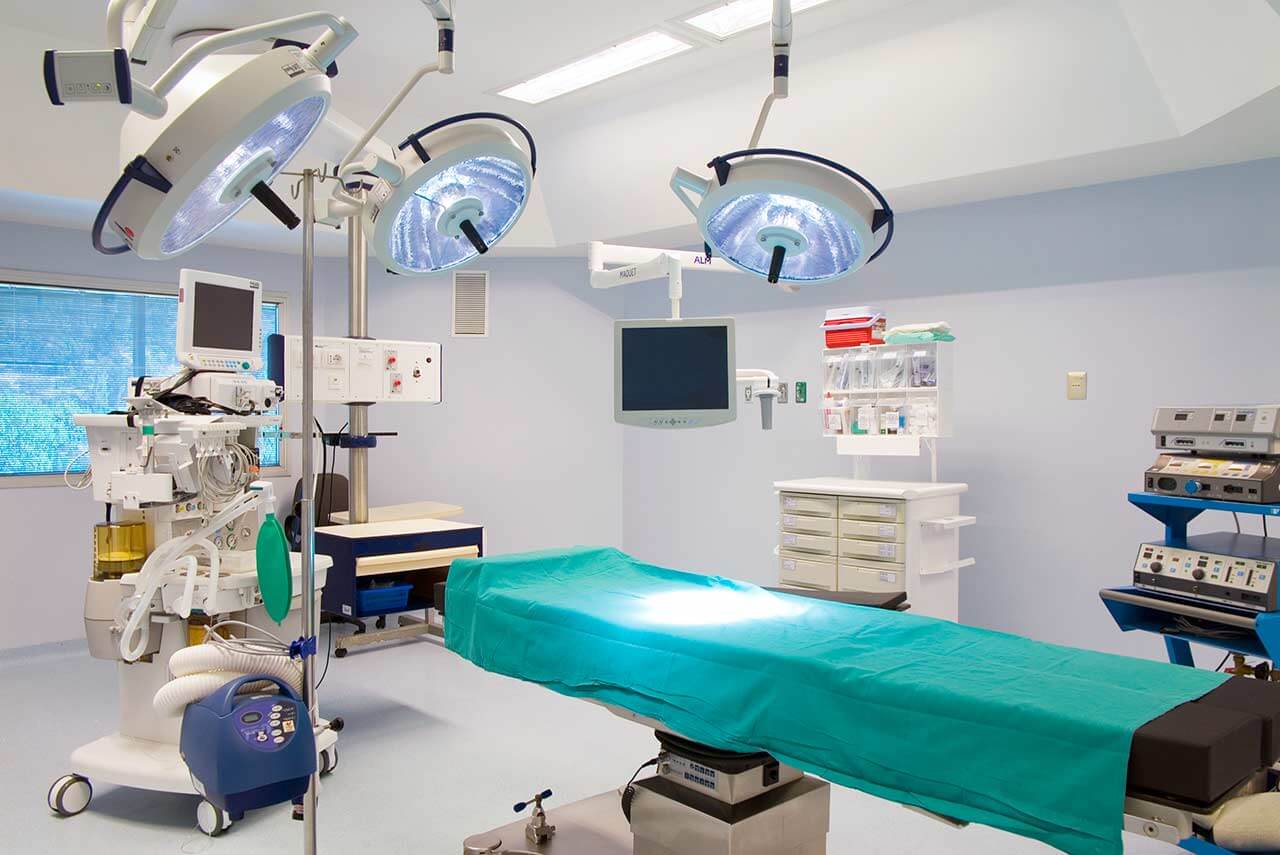
The program includes:
- Initial presentation in the clinic
- clinical history taking
- physical examination
- review of medical records
- laboratory tests:
- complete blood count
- general urine analysis
- biochemical analysis of blood
- TSH-basal, fT3, fT4
- indicators of inflammation (CRP, ESR)
- indicators blood coagulation
- abdominal ultrasound
- CT/MRI abdomen
- preoperative care
- rectocele resection
- symptomatic treatment
- control examinations
- the cost of essential medicines and materials
- nursing services
- nutrition recommendations
- full hospital accommodation
- explanation of future recommendations
Required documents
- Medical records
- Transvaginal ultrasound (if available)
- CT scan of the abdomen and pelvis (if available)
Service
You may also book:
 BookingHealth Price from:
BookingHealth Price from:
About the department
The Department of General and Abdominal Surgery, Colorectal Surgery, Hepatopancreatobiliary Surgery, Hernia Surgery, Endocrine Surgery, Vascular Surgery and Bariatric Surgery at the Hospital Cologne-Holweide provides the full range of medical services in the areas of its specialization. The team of the department's surgeons performs operations of varying complexity for liver, pancreatic, gallbladder, bile duct, rectal, colon, anal, thyroid, parathyroid, and adrenal diseases. Of particular interest is surgery for stomach, colon, liver, esophageal, pancreatic, and thyroid cancer. The specialists at the medical center also perform surgery for treating vascular diseases, including occlusive peripheral arterial disease, carotid stenosis, abdominal and thoracic aortic aneurysms, traumatic vascular injuries, etc. The department successfully performs hernioplasty for inguinal hernias, umbilical hernias, and anterior abdominal wall hernias. Patients with morbid obesity can get medical care here and are offered all surgical treatment options available in modern medicine, including gastric banding, gastric bypass, sleeve gastroplasty, intragastric balloon placement, and biliopancreatic diversion with duodenal switch. Almost all surgical interventions are performed using minimally invasive techniques. The department's operating rooms are equipped with state-of-the-art technology and meet European hygiene and safety standards. The Head Physician of the department is Prof. Dr. med. Claus Eisenberger.
The department's abdominal surgeons often treat patients with colon, stomach, pancreatic, and esophageal cancers. Stomach cancer is a common condition that is most often caused by a Helicobacter pylori infection. Stomach malignancies do not cause any symptoms for a long time, but they grow and metastasize quite quickly. A surgical intervention is the main and most effective treatment method. In the early stages, surgeons can preserve the stomach or even perform minimally invasive endoscopic intervention. In most cases, patients also receive neoadjuvant chemotherapy before surgery, which shrinks the size of the tumor and destroys micrometastases, thereby reducing the scope of the upcoming intervention and making it as effective as possible. Patients with advanced stomach cancer quite often have local metastases, so total cytoreduction with follow-up hyperthermic intraperitoneal chemotherapy (HIPEC) is additionally performed during the operation. An optimal treatment regimen for the patient is developed during an interdisciplinary tumor board when doctors from related medical specialties cooperatively study the results of diagnostic tests and prescribe a complex of therapeutic measures that will provide the patient with the best results.
General and abdominal surgeons successfully perform surgery for benign gastrointestinal diseases like gastroesophageal reflux disease, achalasia cardia, Zenker's diverticulum, gastritis, gastric ulcers, benign neoplasms, and other pathologies. The first-line treatment involves drug therapy or endoscopic therapy. If these methods do not give the desired result, surgeons are involved in the therapeutic process. As a rule, surgery for benign diseases of the digestive system is performed using minimally traumatic surgical techniques.
An important focus of the department's work is on colorectal surgery. The specialists in this field provide medical care to patients with rectal, bowel, and anal pathologies, among which the most common are anal cancer, hemorrhoids, anal eczema, anal fissures, sphincter dysfunction, rectal prolapse, rectal prolapse, rectocele, and anal abscesses. The department's doctors have in their arsenal such methods as proctoscopy, rectoscopy, anorectal manometry, rectal endosonography, MRI defecography, biopsy, and other diagnostic methods to make a diagnosis. The range of surgical interventions for proctologic diseases includes the Longo procedure, the STARR procedure, sphincter reconstruction, rectopexy, sacral neuromodulation, pilonidal cyst excision and its reconstruction using the Karydakis technique, and many other procedures. Minimally invasive techniques are used during the treatment, so patients can return to their everyday lives as soon as possible.
The department's team of endocrine surgeons has vast experience in the treatment of thyroid diseases. Of particular interest is the treatment of thyroid cancer: papillary, follicular, medullary, and anaplastic. During the diagnostics, doctors conduct thyroid palpation, ultrasound scanning, laboratory tests, a biopsy, and scintigraphy. The course of treatment is planned based on the diagnostic results as well as the patient's age and their general health condition. The main treatment method is tumor resection or total removal of the thyroid gland: hemithyroidectomy or total thyroidectomy. The operations are performed using minimally invasive techniques under the guidance of a modern neuromonitoring system to prevent any damage to the recurrent laryngeal nerve. Radioactive iodine therapy and hormone therapy are often used as supplements to surgery.
The department's surgical options include:
- Surgical treatment of gastrointestinal and peritoneal diseases
- Surgery for malignant diseases
- Surgery for stomach cancer
- Surgery for colon cancer
- Surgery for esophageal cancer
- Surgery for pancreatic cancer
- Surgery for retroperitoneal cancer: peritoneal mesothelioma, peritoneal carcinomatosis, and appendiceal cancer with spread to the peritoneum
- Surgery for benign diseases
- Surgery for benign tumors
- Surgery for gastroesophageal reflux disease
- Surgery for achalasia cardia
- Surgery for gastritis
- Surgery for peptic ulcer
- Surgery for inflammatory bowel disease: Crohn's disease and ulcerative colitis
- Surgery for malignant diseases
- Surgery for rectal, colon, and anal diseases
- Milligan-Morgan hemorrhoidectomy and Longo procedure for hemorrhoids
- Resection rectopexy for rectal prolapse
- Fissurotomy and anorectal flap repair for anal fissures
- Surgical resection of malignant anal and rectal tumors
- Sacral neuromodulation and sphincter reconstruction for fecal incontinence
- Surgical treatment of liver, gallbladder, and bile duct diseases
- Surgeries for malignant diseases
- Surgery for liver cancer and liver metastases
- Surgery for gallbladder cancer
- Surgery for benign diseases
- Surgery for gallstone disease
- Surgery for acute and chronic cholecystitis
- Surgery for benign liver and gallbladder tumors
- Surgeries for malignant diseases
- Surgical treatment of hernias
- Shouldice operation
- Transabdominal preperitoneal (TAPP) hernioplasty
- Intraperitoneal onlay mesh repair (IPOM)
- Surgery for thyroid, parathyroid, and adrenal diseases
- Hemithyroidectomy and thyroidectomy for thyroid cancer
- Parathyroidectomy for parathyroid disease
- Adrenalectomy for adrenal diseases
- Surgical treatment of diseases of the vascular system
- Surgery for occlusive peripheral arterial disease
- Surgery for carotid artery stenosis
- Surgery for diabetic foot syndrome
- Surgery for abdominal and thoracic aortic aneurysms
- Surgery for varicose veins
- Surgery for deep vein thrombosis
- Surgery for vascular traumas
- Surgical treatment of morbid obesity
- Intragastric balloon placement
- Gastric banding
- Gastric bypass surgery
- Sleeve gastroplasty
- Biliopancreatic diversion with duodenal switch
- Other medical services
Curriculum vitae
Higher Education
- 1989 Medical studies, Eberhard Karl University of Tuebingen.
- 1992 First State Medical Examination.
- 1994 Second State Medical Examination.
- 1994 - 1995 United States Medical Licensing Examination (USMLE), Parts I and II.
- 1994 - 1995 Internship: Department of General Surgery, hospital at the University of Pretoria, South Africa; Department of Internal Medicine, St. Catherine's Hospital Stuttgart, Germany; Department of Cardiology, St. Catherine's Hospital Stuttgart, Germany; Department of Anesthesiology and Intensive Care, St. Catherine's Hospital Stuttgart, Germany.
- 1995 Third State Medical Examination.
Internships
- 1989 Sports Clinic in Stuttgart.
- 1989 - 1993 Departments of General Surgery, Traumatology and Otolaryngology at St. Mary's Hospital Stuttgart.
- 1991 - 1992 Research Fellow, Macroscopic Anatomy Course, Institute of Anatomy at the Eberhard Karl University of Tuebingen.
- 1992 Private Orthopedic Clinic in Munich.
- 1992 Department of Urology, St. Catherine's Hospital Stuttgart.
- 1992 - 1993 Department of General Surgery at the University Hospital Tuebingen.
- 1993 Department of Urology, Cedars-Sinai Medical Center in Los Angeles.
- 1995 Department of Urology and Transplant Surgery, Edouard Herriot Hospital.
Professional Career
- 1995 - 1997 Internship, Department of General Surgery, University Hospital Hamburg-Eppendorf.
- 1996 Work in the Department of Endoscopy and Endoscopic Surgery.
- 1997 Theoretical foundations of the specialty in Emergency Medical Care.
- Since 1997 Research Fellow and Assistant Physician, Department of Surgery, University Hospital Hamburg-Eppendorf.
- Since 1998 Work in the Department of General, Abdominal and Thoracic Surgery, University Hospital Hamburg-Eppendorf.
- 1998 Work in the Department of Traumatology and Reconstructive Surgery, University Hospital Hamburg-Eppendorf.
- 1999 Theoretical foundations of the specialty in Radiation Protection.
- 2002 Board certification in Surgery, Hamburg Medical Association.
- 2002 Foundation of the Department of Vascular Surgery on the basis of the Department of General, Abdominal and Thoracic Surgery, University Hospital Hamburg-Eppendorf.
- Since 09.2003 Senior Physician, Department of General and Abdominal Surgery, Pediatric Surgery at the University Hospital Duesseldorf.
- 08.2004 Board certification in Abdominal Surgery, Medical Association of North Rhine.
- 07.2009 Board certification in Thoracic Surgery, Medical Association of North Rhine.
- Since 2009 Deputy Head of the Department of General and Abdominal Surgery, Pediatric Surgery at the University Hospital Duesseldorf.
- Since 06.2011 Head Physician of the Department of General and Abdominal Surgery, Colorectal Surgery, Hepatopancreatobiliary Surgery, Hernia Surgery, Endocrine Surgery, Vascular Surgery and Bariatric Surgery at the Hospital Cologne-Holweide.
Clinical Focuses
- Surgical treatment of cancer.
- Surgical treatment of endocrine diseases.
- Surgical treatment of respiratory diseases.
- Surgical treatment of pancreatic and liver diseases.
- Minimally invasive surgery on the organs of the abdominal cavity and respiratory system.
Memberships in Professional Societies
- German Society of Surgery (DGC).
- Surgical Working Group for Endocrinology (CAEK).
- Surgical Working Group on Molecular Diagnosis and Therapy (CAMO).
- North-West German Association of Surgeons.
- German Society of Urology (DGU).
- Association of Bavarian Surgeons.
- German Society for Thoracic Surgery (DGT).
- Endourological Society.
- German Society for Gastroenterology, Digestive and Metabolic Diseases (DGVS).
- Association of Surgeons of the Middle Rhine.
- German Society for General and Visceral Surgery (DGAV).
- Professional Society of German Surgeons (BDC).
- German Society of Plastic, Reconstructive and Aesthetic Surgeons (DGPRÄC).
- German Cancer Society (DKG).
Photo of the doctor: (c) Krankenhaus Köln-Holweide
About hospital
According to the reputable Focus magazine, the Hospital Cologne-Holweide ranks among the top medical centers in North Rhine-Westphalia!
The medical complex is an academic hospital of the University of Cologne, providing patients with high-quality healthcare based on the latest achievements in university medicine. The hospital admits patients with various diseases, including cancer, diseases of the hematopoietic system, urinary system, gastrointestinal tract, ENT organs, etc. The hospital is known for having one of the largest Departments of Obstetrics in Germany, where more than 1,800 babies are born every year. The health facility also houses the specialized Breast Cancer Center and the Colon Cancer Center, whose treatment success rates are consistently high. The hospital has advanced technical resources and highly qualified staff to provide patients with effective medical care in the areas of its specialization.
The hospital has a total of 465 beds. The medical facility annually admits about 20,500 inpatients and more than 63,900 outpatients for diagnostics and treatment. The hospital provides comfortable conditions and modern infrastructure to meet the needs and wishes of patients. The medical team at the hospital prefers a multidisciplinary approach to medical care, which is particularly valuable in treating complex conditions such as cancer.
In 2009, the hospital was successfully certified by "High-Quality Management of Acute Pain Syndrome" TÜV Rheinland Group in gynecology, surgery, urology, otorhinolaryngology, and anesthesiology. In addition, the hospital became the first emergency medical facility for adults in Cologne to be KTQ® (Cooperation for Transparency and Quality in Healthcare) certified.
The specialists at the hospital always strive to provide each patient with high-quality medical care in a pleasant atmosphere. Doctors are open to dialog, gladly answer all questions that patients are interested in, and provide moral support throughout the therapeutic process.
Photo: (с) depositphotos
Accommodation in hospital
Patients rooms
The patients of the Hospital Cologne-Holweide live in comfortable single and double rooms designed in light colors. Each patient room has an ensuite bathroom with a shower and a toilet. The furnishings of a standard patient room include an automatically adjustable bed with an orthopedic mattress, a bedside table, a wardrobe for personal belongings, a table and chairs for receiving visitors, and a TV with international channels. Wi-Fi is also available in the patient rooms.
The patients can stay in enhanced-comfort rooms, if desired. Such rooms are more spacious and additionally equipped with a safe, a mini-fridge, and upholstered furniture.
Meals and Menus
The patients are offered three tasty and healthy meals a day: breakfast, lunch, and dinner. Breakfast and dinner are served as buffets, and for lunch, there is a set of three menus to choose from.
If, for some reason, you do not eat all the foods, you will be offered an individual menu. Please inform the medical staff about your dietary preferences prior to treatment.
Further details
Standard rooms include:
Religion
A worship service is held in the chapel at the hospital every Sunday. There is also a prayer room at the hospital where one can pray in private.
The services of representatives of other religions are available upon request.
Accompanying person
Your accompanying person may stay with you in your patient room or at the hotel of your choice during the inpatient program.
Hotel
You may stay at the hotel of your choice during the outpatient program. Our managers will support you for selecting the best option.





